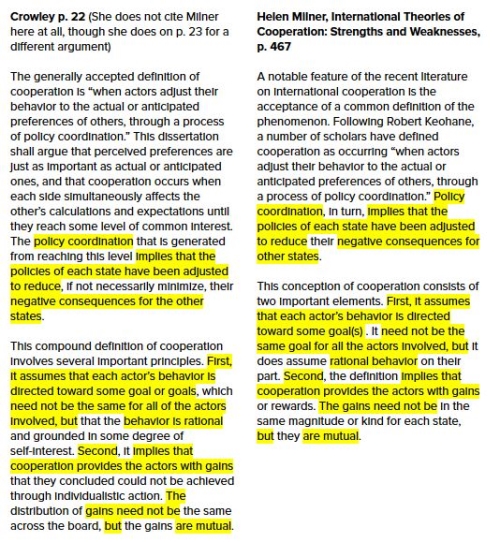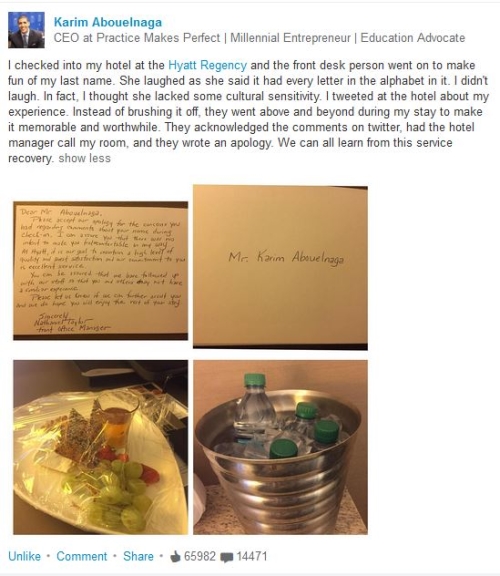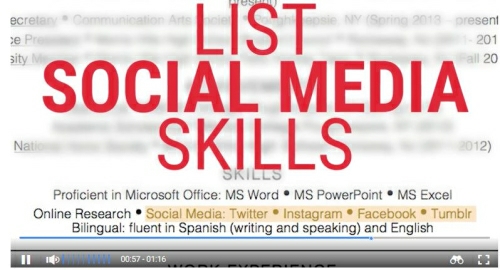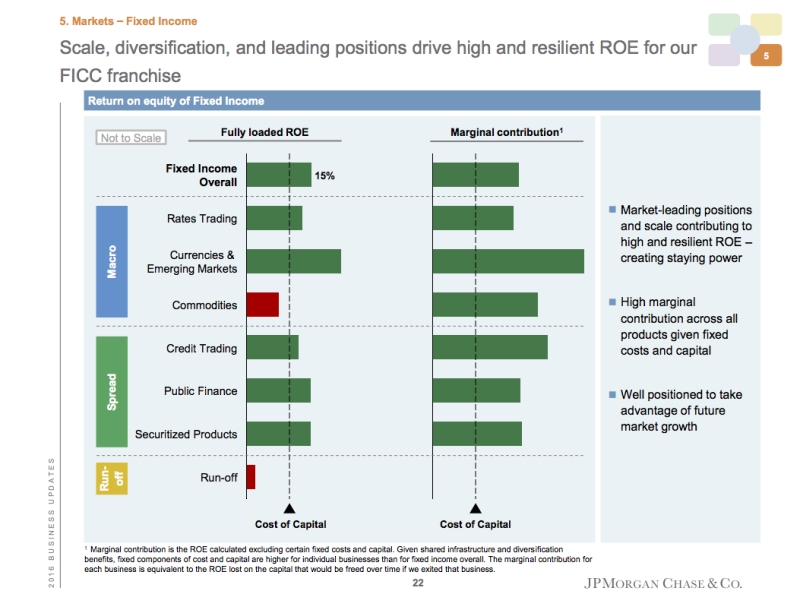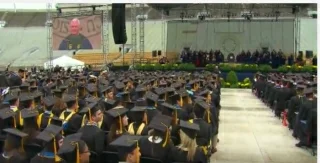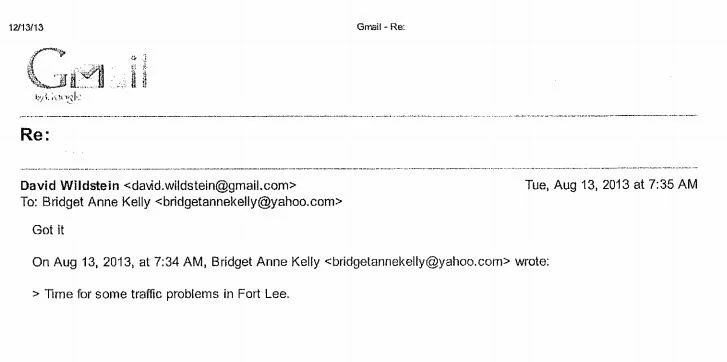APA Responds to Book Controversy
 Japanese Hotel Group APA placed copies of a book written by the company CEO in all hotel rooms. Sounds nice, but the book calls the 1937 Nanjing massacre of 300,000 Chinese troops and civilians by the Japanese a "fabrication."
Japanese Hotel Group APA placed copies of a book written by the company CEO in all hotel rooms. Sounds nice, but the book calls the 1937 Nanjing massacre of 300,000 Chinese troops and civilians by the Japanese a "fabrication."
APA Founder Toshio Motoya wrote under a pen name but admitted to writing the book and having them distributed throughout the group's 370 budget hotels. A hotel guest's video showing the book content went viral on Weibo with 95 million views, according to Skift. At least one Chinese travel company in Japan stopped booking guests in APA hotels.
A spokesperson for the Chinese Foreign Ministry, Hua Chunying, said, "This once again shows that some forces in Japan are still reluctant to look squarely at history, and even try to deny and distort history."
APA responded in a statement, translated here. In this excerpt and throughout the statement, the company makes no apologies:
Although we acknowledge that historic interpretation and education vary among nations, please clearly understand that the book is not aimed to criticize any specific state or nation, but for the purpose of letting readers learn the fact-based true interpretation of modern history. Therefore, we have no intention to withdraw this book from our guest rooms, no matter how many denounces may be made about it from whatever viewpoint. Japan constitutionally guarantees freedom of speech and no one-sided pressures could force any assertion made get repealed.
Discussion:
- Did the company make a mistake by placing the books in hotel rooms? What are the rationale and consequences?
- How do you assess the company's response? Consider principles of responding to customer complaints in Chapter 7.
- Would you stay at an APA hotel? How, if at all, does this situation influence your decision?
Announcement of Retail Store Closings
 Several retailers are in the news for store closings: The Limited, Macy's, and now Ten Thousand Villages. Obviously, the latter is a small operation, but this one landed in my email because I've been on our local board of directors for the past four years. Ten Thousand Villages is a non-profit, fair trade organization.
Several retailers are in the news for store closings: The Limited, Macy's, and now Ten Thousand Villages. Obviously, the latter is a small operation, but this one landed in my email because I've been on our local board of directors for the past four years. Ten Thousand Villages is a non-profit, fair trade organization.
For all of these companies, the news is not surprising. Sales have been declining fairly steadily, with brick-and-mortar stores finding it increasingly difficult to compete with internet sales.
Communication from Carl Lundblad, Interim CEO Ten Thousand Villages
Since our founding in 1946, Ten Thousand Villages has existed to fulfill one important mission: creating opportunities for artisans in developing countries to earn income by bringing their products and stories to our markets through long-term fair trading relationships.
As a fair trade leader, Ten Thousand Villages is committed to the future sustainability of this mission. To that end, we will take a number of actions to simplify our operations in 2017, including closing 12 company-owned stores and reducing staffing at our office headquarters and warehouse by approximately 20 positions.
Though critically necessary, these decisions have been difficult. We are profoundly grateful for the contributions of stores and staff in growing fair trade across the country and changing lives around the world. It is this legacy that we will build on as we move forward, reaffirming ourselves as fair trade pioneers- still committed to business that is ethical at every step, still rooted in our founding principles of selling product and telling stories of social and economic empowerment.
With support refocused on growth opportunities and initiatives to improve core operations, we can be more responsive to the market and ultimately better positioned to help artisans in developing countries in meaningful ways. Thank you for supporting our mission. We look forward to your continued partnership as we evolve into a stronger Ten Thousand Villages.
Chris Oliver
Alliance Manager
The message includes the basics: the bad news, a bit about the decision process, and plans for moving forward.
Discussion:
- Where is the news in the announcement? How well does the organization work?
- After reading this message, how optimistic would you feel about the company's future? Why?
- Assess the announcement against additional principles of bad-news messages in Chapter 8. What works well, and advice would you give to Chris Oliver to improve the message?
SeaWorld Responds to Tillikum's Death
 Featured in Chapter 7 of the 10th edition, SeaWorld has not responded well to controversy about keeping orcas in captivity. Tillikum, an orca with a starring role in the movie Blackfish, died on January 6. In response, SeaWorld updated its Tillikum page with news about his "life and care," which, of course, have been in question for the 25 years he lived and worked at the park. The company also produced a video, "In Memory of Tillikum."
Featured in Chapter 7 of the 10th edition, SeaWorld has not responded well to controversy about keeping orcas in captivity. Tillikum, an orca with a starring role in the movie Blackfish, died on January 6. In response, SeaWorld updated its Tillikum page with news about his "life and care," which, of course, have been in question for the 25 years he lived and worked at the park. The company also produced a video, "In Memory of Tillikum."
In a statement on its website, the company does acknowledge Dawn Bradshaw's death. However, the recent approach seems to blame Tillikum, while previous communications blamed Bradshaw and her wayward ponytail.
While today is a difficult day for the SeaWorld family, it's important to remember that Tilikum lived a long and enriching life while at SeaWorld and inspired millions of people to care about this amazing species.
Tilikum's life will always be inextricably connected with the loss of our dear friend and colleague, Dawn Brancheau. While we all experienced profound sadness about that loss, we continued to offer Tilikum the best care possible, each and every day, from the country's leading experts in marine mammals.
In December, PETA named Tillikum its first "animal of the year." When he died, PETA president and founder Ingrid Newkirk wrote an opinion article for Time Inc. titled, "Tillikum Died for His Freedom."
Discussion:
- How well is SeaWorld handling communications around Tillikum's death? Should the company do something differently now?
- How well is PETA capitalizing on the chance to get its message out? What persuasive strategies does Newkirk use in her Time Inc. op-ed? Was a Time article a good choice? What other channels did PETA use?
Plagiarizing a Dissertation Puts Trump Pick in Question
President-elect Trump's choice for the senior director of strategic communications for the National Security Council is Monica Crowley, a political commentator. Politico reviewed her dissertation in international relations from Columbia University and found multiple issues of using quotations with quotation marks, paraphrasing too closely, and missing citations.
The example shown here is one of twelve Politico questioned.
The Trump team is standing by their candidate: "Any attempt to discredit Monica is nothing more than a politically motivated attack that seeks to distract from the real issues facing this country." And Columbia University is trying to avoid the controversy, as a media representative told The Chronicle of Higher Ed:
"We have no comment on Monica Crowley's dissertation, which was submitted in 2000 and is publicly available. The university's process for addressing concerns raised about university research preserves the confidentiality of any review, and even the fact of a review's existence is confidential while it is underway. Columbia is committed to upholding the very highest standards of integrity and credibility in academic research."
CNN reports more than 50 instances of plagiarism in Crowley's 2012 book, What the (Bleep) Just Happened? In a statement, publisher HarperCollins said, "The book, which has reached the end of its natural sales cycle, will no longer be offered for purchase until such time as the author has the opportunity to source and revise the material."
Discussion:
- Review the examples presented by Politico and CNN. What principles of documenting sources described in Chapter 10 are missed?
- Is this a big deal, or is the media overblowing the situation, as the Trump team believes? Does her potential position as the senior director of strategic communications influence your opinion?
- What should happen now? How should Crowley and the Trump team handle her pending position?
Snap Inc. May Have Falsified Metrics
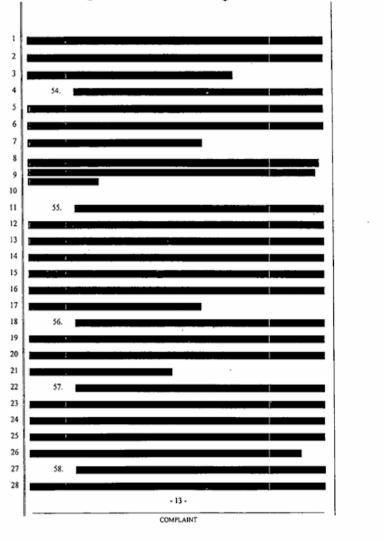 As Snap Inc. plans for an IPO, a former employee says he was fired for trying to reveal falsified metrics. Anthony Pompliano claims he was terminated only three weeks into his tenure at Snap Inc. running the new user growth and engagement team. Pompliano also charges Snap Inc. with hiring him from Facebook to get proprietary information.
As Snap Inc. plans for an IPO, a former employee says he was fired for trying to reveal falsified metrics. Anthony Pompliano claims he was terminated only three weeks into his tenure at Snap Inc. running the new user growth and engagement team. Pompliano also charges Snap Inc. with hiring him from Facebook to get proprietary information.
"We've reviewed the complaint. It has no merit. It is totally made up by a disgruntled former employee," said Mary Ritti, Snap's vice president of communications. The company also said Pompliano was fired because he was "incompetent" and "not adequately performing in his position."
Pompliano's attorney said, "Snapchat's leadership saw Mr. Pompliano as an impediment to their planned IPO because he refused to turn a blind eye to Snapchat's misrepresentations." (Snapchat is the former name of Snap Inc.) The claim also charges Snap Inc. with damaging the former employee's reputation and ability to find new work.
Business Insider posted the entire court filing, but several pages are heavily redacted, like the one shown here. These darken parts may represent proprietary Snap Inc. information.
This isn't the first time Snapchat's integrity has been questioned. In 2014, the company settled a claim with the Federal Trade Commission that it exaggerated how easily images sent through the app disappear. The news led to many doubting the safety of sending personal images.
Discussion:
- In what ways could Snap Inc. exaggerate metrics to potential investors? What do you think is the issue here?
- How credible do you find Pompliano's claim? How can a judge decide such a claim?
Comms About the LIRR Accident
 A Long Island Rail Road train derailed at the Atlantic station in Brooklyn, leaving 76 commuters injured. I never expect much from MTA communications: the last few train problems resulted in a flurry of scheduling messages but little in the way of empathy. This time seems no different.
A Long Island Rail Road train derailed at the Atlantic station in Brooklyn, leaving 76 commuters injured. I never expect much from MTA communications: the last few train problems resulted in a flurry of scheduling messages but little in the way of empathy. This time seems no different. 
A notice on the LIRR website and one tweet warn us to "anticipate possible delays," but subsequent tweets offer no other information or apology. A news conference, so far, is not to be found, but it's still early.
When the MTA has expressed empathy, it has taken a while, so we may see something later, and I'll update this post.
Discussion:
- As a priority, customers do need to know about delays, but why does the human stuff take so long for the MTA?
- Why is humanity important in these types of situations?
- Draft a few tweets and website updates. What could the organization say at this point?
In France, Employees Can Disconnect
 France passed a new law allowing employees the "right to disconnect" from email after their regulated 35-hour work week. French unions blame technology for causing an "explosion of undeclared labor," and we know something about this in the United States. Rather than ban after-work email, which may be impossible to achieve, the ruling requires companies to give establish new guidelines for emailing after work.
France passed a new law allowing employees the "right to disconnect" from email after their regulated 35-hour work week. French unions blame technology for causing an "explosion of undeclared labor," and we know something about this in the United States. Rather than ban after-work email, which may be impossible to achieve, the ruling requires companies to give establish new guidelines for emailing after work.
Some question whether the strategy will hurt France competitively; the country already has generous vacation and other benefits. However, the United States is notoriously behind the times with some labor laws. For example, we are the only industrialized nation without paid parental leave.
Companies have taken other steps to encourage employees to talk with each other face-to-face and to have a life outside of work. Limiting the hours when employees are expected to respond to email, discouraging email during vacations, and sending fewer of them are some common practices.
Discussion:
- What's your view of the new French law? What could be some positive and negative results?
- Short of instituting a new federal law, what can managers do to curb email within their organizations? Consider a few strategies-starting with the top, of course
Judgments People Make Within Seconds
 Business Insider tells us about eight judgments people make right after meeting you:
Business Insider tells us about eight judgments people make right after meeting you:
- If you're trustworthy
- If you're high status (based on clothing)
- If you're straight or gay
- If you're smart (based on eye contact, expressive speaking, and eye glasses)
- If you're promiscuous (based on tattoos)
- If you have a dominant personality (based on having a bald head)
- If you're successful (based on a man's suit)
- If you're adventurous (based on how you walk)
Business Insider identifies research institutions, but we don't see citations for further study. Each judgment seems to be based on one study, so I would be wary about drawing too many conclusions. Yet, we have plenty of research about quick impressions, particularly during job interviews.
Discussion:
- How are quick judgments helpful and harmful? They do serve a purpose, but what are the dangers?
- How does knowing about this research help you personally and professionally? For example, if you know that you make judgments with little information-knowingly or unknowingly-how can you ward against them?
Company Examples to Use in Your Classes
H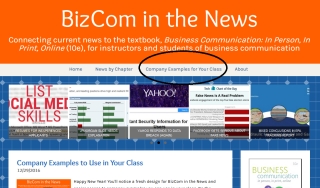 appy New Year! You'll notice a fresh design for BizCom in the News and easier access to company examples you can use in your classes. On the navigation bar under the title, select "Company Examples for Your Class" to see a list of chapters. For each, I'll post examples-videos, blog posts, letters, etc.-as I find them.
appy New Year! You'll notice a fresh design for BizCom in the News and easier access to company examples you can use in your classes. On the navigation bar under the title, select "Company Examples for Your Class" to see a list of chapters. For each, I'll post examples-videos, blog posts, letters, etc.-as I find them.
In almost every class, we talk about a news story or look at a company's communication. I find this approach engages students and shows them the relevance of what we teach. If you would like ideas on how to incorporate news in your class, I would glad to send you slides from an Association for Business Communication conference presentation and a webinar via Cengage Learning.
The news by chapter is now also in the navigation bar, and you can still use the search feature in the right-hand column.
Have a wonderful winter break,
Amy
Email: amynewman@cornell.edu
Japanese Ad Exec Resigns After Employee Suicide
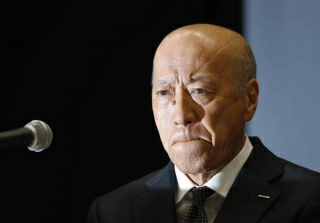 The president of Dentsu Inc., Japan's largest advertising agency, resigned because of an overworked employee's suicide last year. In a news conference, Tadashi Ishii said, "We deeply regret failing to prevent the overwork of our new recruit. I offer my sincere apology." He also said, "Although we took various countermeasures, the issue of overwork has not been improved. I will take full responsibility."
The president of Dentsu Inc., Japan's largest advertising agency, resigned because of an overworked employee's suicide last year. In a news conference, Tadashi Ishii said, "We deeply regret failing to prevent the overwork of our new recruit. I offer my sincere apology." He also said, "Although we took various countermeasures, the issue of overwork has not been improved. I will take full responsibility."
According to an executive at the firm, 24-year-old Matsuri Takahashi was forced to work long hours and underreport her time. She died by jumping from a high floor of the company's living quarters.
An employee who watched the news conference said, "His stepping down is a natural decision to prevent the company's image from deteriorating further." Resigning is common in these situations in Japan.
Discussion:
- Employees seem skeptical that the company will change, but they are turning out the lights at 10 pm to encourage people to stop working and go home. What else could they do to change the culture of overwork?
- Advertising firms in the United States have a similar reputation for long hours. Why do you think that's the case?
- Under what, if any, circumstances would you take a job that requires 100 hours of work each week?
WSJ's Best and Worst Ads of 2016
 The Wall Street Journal rounds up the best and worst ads of the year under the article title, "The Things We Can't Unsee." Among the winners are Sprint's ad starring Paul Marcarelli, a long-time Verizon promoter ("Can you hear me now?") and, of course, Mountain Dew's Puppymonkeybaby.
The Wall Street Journal rounds up the best and worst ads of the year under the article title, "The Things We Can't Unsee." Among the winners are Sprint's ad starring Paul Marcarelli, a long-time Verizon promoter ("Can you hear me now?") and, of course, Mountain Dew's Puppymonkeybaby.
The Mountain Dew video garnered almost 28 million views on YouTube. I wonder how many people are watching it multiple times.
On the loser list are a Wells Fargo pitch, which BizCom in the News featured, discouraging teens from pursuing the arts, and one I missed this year: a short Sprint ad that calls T-Mobile "ghetto."
Another offensive ad was on a billboard for "X-Men Apocalypse." The ad showed Jennifer Lawrence's character being strangled. People don't take domestic violence references lightly.
Discussion:
- What's your view of The Wall Street Journal's list? Which ads do like?
- Do you find the Sprint and X-Men ads offensive?
Retailers Sued for Fake Sales
 When is a sale not really a sale? Macy's, Kohl's, JCPenney, and Sears are facing lawsuits for "false reference pricing"-showing prices as "regular," "list," or "original" when they never were. According to the Consumerist:
When is a sale not really a sale? Macy's, Kohl's, JCPenney, and Sears are facing lawsuits for "false reference pricing"-showing prices as "regular," "list," or "original" when they never were. According to the Consumerist:
Under California law, retailers are prohibited from advertising an alleged former price of an item less the alleged former price was the prevailing market price within three months of the advertisement, or unless the date when the former price was in effect is clearly advertised.
To this end, the city [Los Angeles] claims that thousands of "sale" items were advertised at false reference prices.
In other words, items marked on sale were never sold at the so-called "original" price, and that's a misrepresentation.
The Los Angeles attorney who filed the suits said, "Customers have the right to be told the truth about the prices they're paying–and to know if a bargain is really a bargain. My office will fight to hold retailers responsible for their practices and to ensure consumers can make informed choices when spending their hard-earned money."
Checkbook.org brought a similar suit against some of these retailers in 2015. At that time, Sears made this statement:
"Sears disagrees with any suggestion that its pricing is misleading or deceptive. Sears is focused on providing its members with great prices on a wide variety of products and services," adding that it "complies with applicable pricing and advertising laws."
"... as a multi-channel, leading integrated retailer we are uniquely positioned to provide discounts to our members and customers in a number of different, legally compliant ways, including things like member pricing, store or online only promotions, clearance offers, and offers from third-party marketplace sellers," the statement said. "It is unfortunate that Checkbook.org did not appear to take these factors into account before making its assumptions."
Discussion Starters:
- How are you influenced by advertised "sales"?
- How believable do you find the two statements from 2015? What defense will the retailers bring to this suit?
Hyatt Regency Apologizes for Comments About a Name
 When Karim Abouelnaga, CEO, Practice Makes Perfect, checked into a Hyatt Regency, the woman at the front desk laughed at his last name. He tweeted to the hotel about the situation and received a message in return, a call from the hotel manager, and an apology note with a few gifts, shown here. Abouelnaga's LinkedIn post received almost 66,000 likes as of today, and more may come.
When Karim Abouelnaga, CEO, Practice Makes Perfect, checked into a Hyatt Regency, the woman at the front desk laughed at his last name. He tweeted to the hotel about the situation and received a message in return, a call from the hotel manager, and an apology note with a few gifts, shown here. Abouelnaga's LinkedIn post received almost 66,000 likes as of today, and more may come.
The apology note is a good example of a handwritten note, discussed in the introduction of Chapter 6. They are so rare that one can differentiate you and your business from others, as this example shows.
Discussion:
- What do you think about the initial interaction with the front desk? Should the agent have known better? How can this be avoided in the future?
- How well did Hyatt Regency respond? Some might think they went over the top. What's your view?
Resumes for Inexperienced Applicants
Business Insider recommends good advice for students and others with little work experience. For a resume, this video suggests focusing on accomplishments and highlighting social media skills, which could be coveted by employers.
But other advice may be outdated or inappropriate. For example, including a goal or objective at the top of your resume may not be necessary your interest is clear on your cover letter or if you're applying for a job through your school's on-campus recruiting program. In both cases, the job you want is obvious.
Career website The Muse goes further, suggesting an objective only when you're making a major career change-not for students, as Business Insider suggests, and Cleverism recommends the same.
Discussion:
- Which advice in the video do you find most and least helpful? What, if anything, contradicts what you have learned in the past?
- What other advice would you give to a high school student creating his or her first resume?
JPMorgan Slide Needs Explanation
JPMorgan CEO Jamie Dimon and others didn't understand a slide about the bank's strategy. Daniel Pinto, head of the corporate and investment bank, presented the slide to Dimon and others. According to Business Insider, Dimon said of the chart: "no one understood, including myself at the time."
The slide is part of a longer presentation about the corporate and investment banking division. In an interview with Business Insider, Pinto explains the chart:
"This is fully loaded ROE for all the business lines in fixed income. This is what we produce. This line is the cost of capital, and every single business, on a fully loaded basis, is delivering a return ahead of the cost of capital, except for commodities, which is going through a process of adjustment. The most important part is if you were to eliminate one of those, not all of the capital goes away, not all of the cost goes away, so essentially the marginal impact, the ROE you would lose by closing the business, is far higher than 15%. That's why, for me, the completeness is very important."
Discussion:
- To what extent does Pinto's explanation help you understand the chart?
- Should an executive use a chart that's difficult to understand intuitively? What should you consider in making this decision? Consider the audience, setting, etc.
Yahoo Responds to Data Breach (Again)
This is second post with the same title for BizCom in the News; the first was in September-just a few months ago.
For this data breach, the company again used Tumblr to communicate with users. This post has bold headings, but the messages are similar.
Reuters reports this is the biggest data breach in history, affecting 1 billion users. The stock dropped 6%, and Verizon is renegotiating its terms to buy the company. Verizon has threatened to sue if Yahoo refuses to reduce the purchase price,
The Reuters article quotes experts with harsh comments about the company:
- "Yahoo has fallen down on security in so many ways I have to recommend that if you have an active Yahoo email account, either direct with Yahoo of via a partner like AT&T, get rid of it."
- "Considering the repeated cases of data theft, users should look more closely at which services they want to use in the future and security should play a part in that decision."
In addition to its blog post, a Yahoo spokesperson commented, essentially rephrasing part of the Tumblr post: "We're committed to keeping our users secure, both by continuously striving to stay ahead of ever-evolving online threats and to keep our users and platforms secure."
Discussion:
- How do you think this news will affect Yahoo users? Does it change your opinion of the company? Does the fact that Yahoo is a technology company influence your opinion?
- How well does the Tumblr post address users' concerns?
- Should the Yahoo spokesperson have said something different when questioned by the Reuters reporter? What might have worked better?
Facebook Gets Serious About Fake News
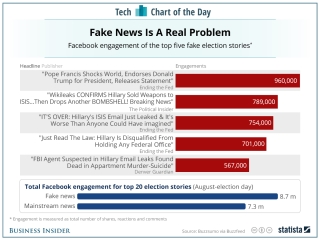 Facebook is getting serious about addressing fake news on its site. The issue came to a head when an armed man fired a shot in a pizzeria, believing a story about Hillary Clinton ran a child sex ring there.
Facebook is getting serious about addressing fake news on its site. The issue came to a head when an armed man fired a shot in a pizzeria, believing a story about Hillary Clinton ran a child sex ring there.
First, Facebook is partnering with outside fact checkers ABC News, The Associated Press, FactCheck.org, Politifact, and Snopes, who will review a story identified as possibly untrue. Stories that don't pass muster will be flagged as "disputed," will show lower down on a newsfeed, and will carry another warning if people want to share it.
In a post on its website, Facebook explained the changes in text, with images from the app, and in this video.
Although Mark Zuckerberg has downplayed the issue as only 1% of Facebook posts, he clearly see the company's responsibility. He wrote a post of his own to explain how they're taking action, and the company's post ends, "It's important to us that the stories you see on Facebook are authentic and meaningful. We're excited about this progress, but we know there's more to be done. We're going to keep working on this problem for as long as it takes to get it right."
Discussion:
- What's your view of this approach? Will these strategies work? What else, if anything, should they do?
- How well is Facebook communicating these changes? Review the blog post text, images, and video.
Mixed Conclusions in EPA Fracking Report
 A CBS news article says the Environmental Protection Agency's latest report on fracking "raises more questions than answers." The report concludes, "EPA found scientific evidence that hydraulic fracturing activities can impact drinking water resources under some circumstances. The report identifies certain conditions under which impacts from hydraulic fracturing activities can be more frequent or severe."
A CBS news article says the Environmental Protection Agency's latest report on fracking "raises more questions than answers." The report concludes, "EPA found scientific evidence that hydraulic fracturing activities can impact drinking water resources under some circumstances. The report identifies certain conditions under which impacts from hydraulic fracturing activities can be more frequent or severe."
However, the abstract also includes, "Data gaps and uncertainties limited EPA's ability to fully assess the potential impacts on drinking water resources locally and nationally. Because of these data gaps and uncertainties, it was not possible to fully characterize the severity of impacts, nor was it possible to calculate or estimate the national frequency of impacts on drinking water resources from activities in the hydraulic fracturing water cycle."
Although detailed conclusions may fall short, the agency is trying to make the message accessible by providing a few versions. The website provides a list of all communications related to the study. A fact sheet provides a visual of the fracking process and gives an overview of the findings and how the report can be used.
Discussion:
- Which principles from Chapter 10 in the text does the report follow? Which are not followed?
- How do you assess the findings? How does the report affect your thinking about fracking?
- To what extent do you find the fact sheet useful? How does it fall short?
Company Examples for Chapter 1: Understanding Business Communication (Ethics, Legal, and Technology)
Notre Dame Students Walk Out on VP Pence's Commencement Address (May 2017)
About 100 students left the stadium as Vice President Pence delivered his commencement speech. An interesting class discussion could focus on the ethics of their decision and their rationale, which they give in a statement.
Choate Apologizes for History of Abuse (April 2017)
This may be a tough topic for class, but Choate's open letter is interesting. I found it defensive, but maybe students would disagree.
Princess Cruises Apologizes for Oil Dumping (December 2016)
Princess Cruises, owned by Carnival, published several messages to apologize for illegally dumping oil-contaminated waste into the ocean. The company's communications certainly are prolific, but how honestly do they admit wrongdoing, and how well do they rebuild the brand?
A comment posted on YouTube under the president's video sums up one perspective: "[T]his video needs taking down and a new one with someone who looks sorry is put up. [H]er reading of this is terrible, like watching a 12yr old at a school play." (The writer needs to take one of our classes! But students might agree with his assessment.)
These examples can be used to discuss persuasive strategies (Chapter 7), oral presentations (Chapter 11), and ethics (Chapter 1):
"Bridgegate" Emails Confirm Guilt (November 2016, 2013)
I don't shy away from political topics, and the scandal of NJ Governor Chris Christie's staff closing a bridge lane is a good illustration of how email causes legal trouble. In November 2016, two of his associates were found guilty of creating traffic problems on the George Washington Bridge to retaliate against the Trenton, NJ, major. The email shown here is the most damning evidence in the case. The link, above, includes a written response from Christie and an interview.
Mylan CEO Defends Pricing (August 2016)
The EpiPen may save your life if you have an allergic reaction, but you'll pay a steep price for it. In this interview, Mylan CEO defends a $400 increase over five years. This is an ethical situation and can be used with Chapter 7 to discuss persuasive strategies.
Older Examples
Collection of companies' social media policies.
Apple's (leaked) social media policy.
Great email exchange by two lawyers (discussed in Chapter 1). Useful to discuss ethics, tone, and more. Here's a PowerPoint file to reveal the messages, and you can read more about the situation here.
Excerpts of Goldman Sachs emails (topic in Chapter 1) collected by the Wall Street Journal. As the WSJ reporter says, "The [Senate] committee will likely use many of the emails to illustrate Goldman's sometimes contradictory and unflattering statements about its role in the mortgage meltdown." Read more here.
National Labor Relations Board's memo about social media policies, 2012.
General Mills statement reverting back to its original legal terms.
A general's email about the value of reading. Read more about the situation.
Facebook communications: Communicating Our Community Standards and Guidelines, 2015.
Former Twitter CEO Dick Costolo's posts taking responsibility for cyberbullying on the site, 2015.
Browse News by Chapter





